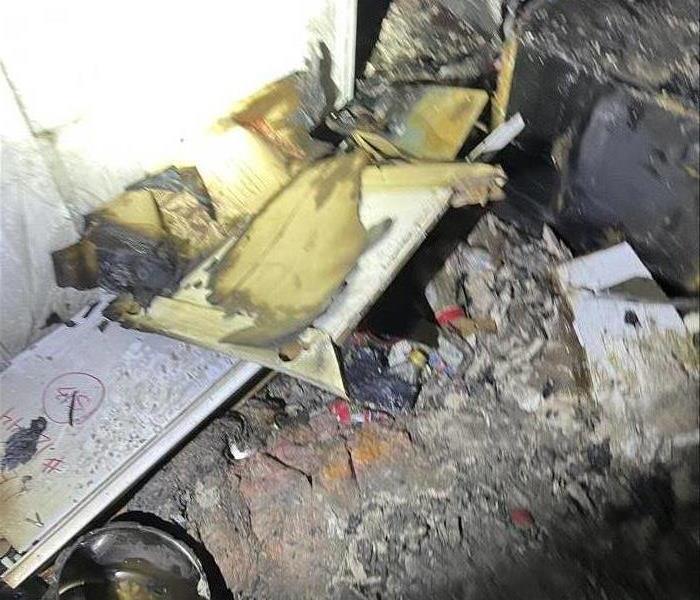Should You Unplug Countertop Appliances to Prevent Fires?
6/4/2024 (Permalink)
 If you need assistance with fire damage restoration, contact our SERVPRO of East Greenwich/Warwick/Cranston team!
If you need assistance with fire damage restoration, contact our SERVPRO of East Greenwich/Warwick/Cranston team!
In your busy day-to-day life, it’s easy to overlook simple safety practices that can prevent home fires. One common question is whether you need to unplug countertop appliances to avoid fires. The answer is a resounding yes. Taking this precaution can significantly reduce fire risks in your kitchen. Let’s explore why unplugging these appliances is crucial and how you can enhance your home’s safety with a few practical tips.
Why Unplugging Countertop Appliances Matters
Countertop appliances, such as toasters, coffee makers, and blenders, can experience electrical malfunctions even when not in use. Over time, wires and components can wear out or become damaged, increasing the risk of sparks or overheating. Unplugging these devices when they’re not in use eliminates this risk.
Power surges can occur for various reasons, including lightning strikes and grid fluctuations. These surges can damage plugged-in appliances, potentially causing them to catch fire. By unplugging appliances, you protect them from unexpected power surges.
It’s easy to forget that an appliance is still plugged in, especially if it’s not used frequently. Accidental activation or leaving it on for extended periods can lead to overheating and fires. Unplugging appliances ensure they’re completely off and not posing a hidden risk.
Practical Tips for Unplugging and Safety
1. Develop a Routine
Make unplugging appliances a habit by incorporating it into your daily routine. For example, after making your morning coffee or toast, unplug the coffee maker and toaster. Consistency will help make this practice second nature.
2. Use Power Strips
Power strips with on/off switches can make it easier to manage multiple appliances. Instead of unplugging each device individually, you can turn off the power strip to cut off electricity to all connected appliances.
3. Check Appliances Regularly
Inspect your appliances for any signs of wear and tear, such as frayed cords or loose plugs. Replace or repair damaged components immediately to prevent potential hazards.
4. Invest in Smart Plugs
Smart plugs can be controlled remotely via smartphone apps. They allow you to turn off appliances even when you’re not at home. Some models also offer scheduling features, ensuring appliances are off when not in use.
5. Educate Family Members
Make sure everyone in your household understands the importance of unplugging appliances. Educate them on the potential risks and encourage them to develop the same safety habits.
6. Install Smoke Detectors
Ensure your kitchen is equipped with smoke detectors. Regularly test them to ensure they’re functioning correctly. Smoke detectors can provide an early warning if something goes wrong.
7. Keep Appliances Clean
Accumulated crumbs and grease can ignite and cause fires. Regularly clean your appliances to remove any buildup that could pose a risk.
Final Thoughts
Unplugging countertop appliances is a simple yet effective way to prevent kitchen fires and enhance your home's safety. Electrical malfunctions, power surges, and forgotten devices all contribute to potential fire hazards. By incorporating unplugging into your daily routine, using power strips, checking appliances regularly, and educating your household, you can significantly reduce these risks.
For more tips on fire prevention and home safety, or if you need assistance with fire damage restoration, contact our SERVPRO of East Greenwich/Warwick/Cranston team. Our team of professionals is here to help you keep your home safe and secure from fire hazards.




 24/7 Emergency Service
24/7 Emergency Service